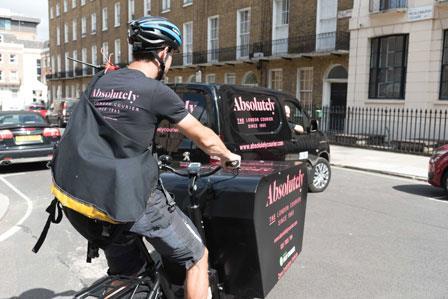
Grants to help companies shift freight from road to more sustainable alternatives are to be made available after the government announced its next big push towards a zero-carbon economy.
As well as investing £350m to support the electrification of UK vehicles and their supply chain and another £620m in grants for EVs and charging points, the government said it would also encourage goods to be moved by rail, bikes and canals.
Its Net Zero plan said the majority of greenhouse gas emissions in transport come from passenger cars (55%) but that HGVs and vans contribute 32% of emissions.
The plan said: “We will transform last mile deliveries, with zero emission HGVs and decarbonised deliveries made possible through the adoption of new delivery models, supported by accurate data and digital innovations which drive greater efficiencies.”
It said it recently consulted on plans to phase out the sale of all new non-zero emission HGVs by 2035 for vehicles 26 tonnes and under and by 2040 for those over 26 tonnes.
“We will support and encourage modal shift of freight from road to more sustainable alternatives such as rail, cargo bike and inland waterways,” it added. “This will be supported by a package of policies including: investing in the capacity and capability of the rail network for freight, including infill electrification schemes; the Mode Shift Revenue Support and Waterborne Freight Grant Schemes; introducing a rail freight growth target; and ‘last mile’ measures to support more sustainable freight in urban areas.”
Michelle Gardner, head of public policy at Logistics UK, said additional funding for the development of EVs was welcome news for logistics companies wanting to move to alternatively fuelled vehicles:
“However, as always, the devil will be in the detail and further funding, including vehicle grants, will be vital to help industry make the change,” she said. “Logistics UK will be examining the proposals to ensure that logistics businesses are not forgotten and can be supported properly on the road to net zero.”
The SMMT said the automotive industry was putting zero-emission vehicles on the roads at pace and “beyond all forecasts”.












![Solera_Iron Mountain_4[77940]](https://d2cohhpa0jt4tw.cloudfront.net/Pictures/100x67/9/1/9/18919_solera_ironmountain_477940_848792.jpg)
